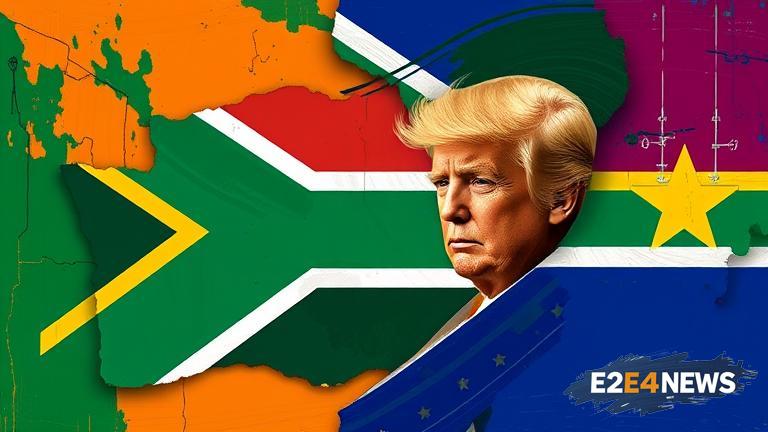The South African government has announced plans to intervene and rescue the country’s economy from the adverse effects of the US trade policies. The move comes after the US government imposed tariffs on certain South African products, dealing a significant blow to the country’s trade sector. The tariffs, which were introduced by the Trump administration, have resulted in a decline in South African exports to the US, leading to job losses and economic instability. In response, the South African government has vowed to take measures to mitigate the effects of the tariffs and protect the country’s economy. The government has announced plans to engage with the US government to negotiate a review of the tariffs and explore alternative markets for South African products. Meanwhile, the South African Reserve Bank has also announced plans to intervene in the foreign exchange market to stabilize the rand, which has been under pressure due to the trade tensions. The bank’s intervention is aimed at preventing a further decline in the value of the rand, which could exacerbate the economic crisis. The government’s rescue measures have been welcomed by the business community, which has been severely affected by the trade blow. The South African Chamber of Commerce and Industry has praised the government’s efforts to mitigate the effects of the tariffs, saying that it is a step in the right direction. However, the chamber has also warned that the government needs to do more to address the underlying issues that have led to the trade tensions. The chamber has called on the government to implement policies that will make the country’s economy more competitive and attractive to foreign investors. The trade blow has also had a significant impact on the country’s agricultural sector, with many farmers struggling to export their products to the US. The government has announced plans to provide support to farmers, including financial assistance and market access programs. The support measures are aimed at helping farmers to diversify their markets and reduce their dependence on the US market. The government has also announced plans to invest in infrastructure development, including the construction of new roads and ports, to improve the country’s trade competitiveness. The investment in infrastructure is expected to create jobs and stimulate economic growth. The trade blow has also highlighted the need for the country to diversify its economy and reduce its dependence on a few key markets. The government has announced plans to promote economic diversification, including the development of new industries such as manufacturing and tourism. The promotion of economic diversification is expected to reduce the country’s vulnerability to external shocks and create new opportunities for economic growth. The government’s rescue measures have been widely welcomed, but there are concerns that they may not be enough to fully mitigate the effects of the trade blow. The opposition party has criticized the government’s response, saying that it is too little, too late. The party has called on the government to take more decisive action to address the trade crisis. Despite the challenges, the government remains optimistic that it can mitigate the effects of the trade blow and promote economic growth. The government has announced plans to work closely with the private sector to develop a comprehensive strategy to address the trade crisis. The strategy will include measures to promote economic diversification, improve trade competitiveness, and provide support to affected industries. The government’s efforts to rescue the economy have been supported by the international community, with many countries expressing solidarity with South Africa. The European Union has announced plans to increase trade with South Africa, providing a much-needed boost to the country’s economy. The increase in trade with the EU is expected to create new opportunities for economic growth and reduce the country’s dependence on the US market.





